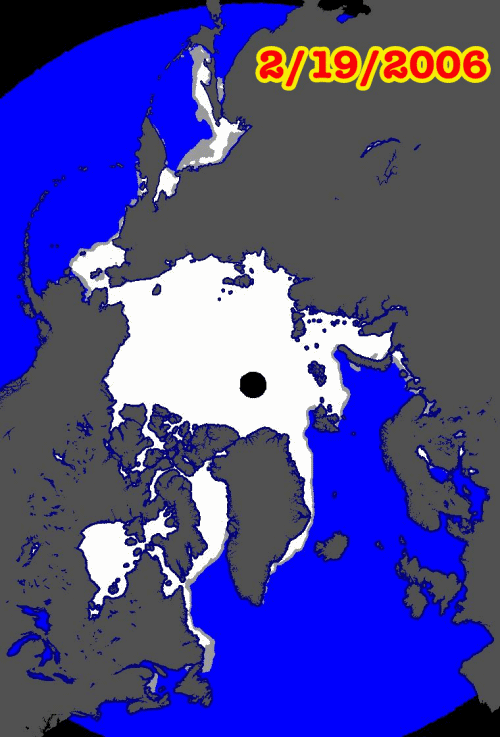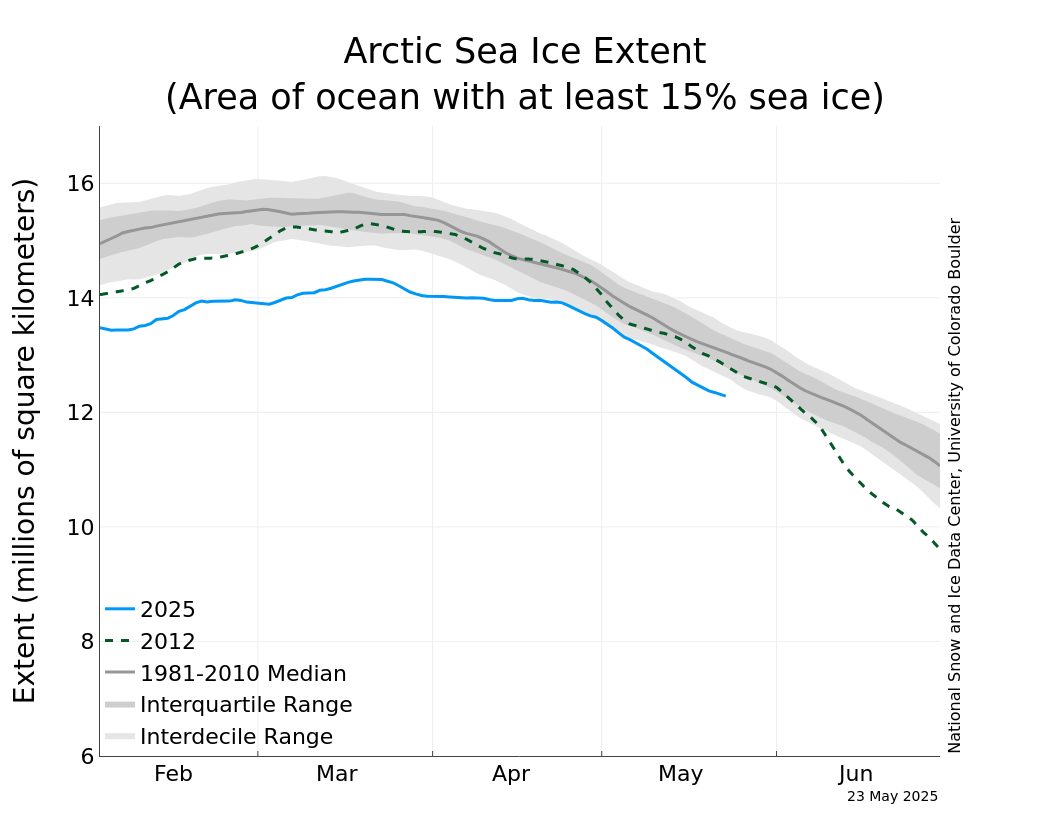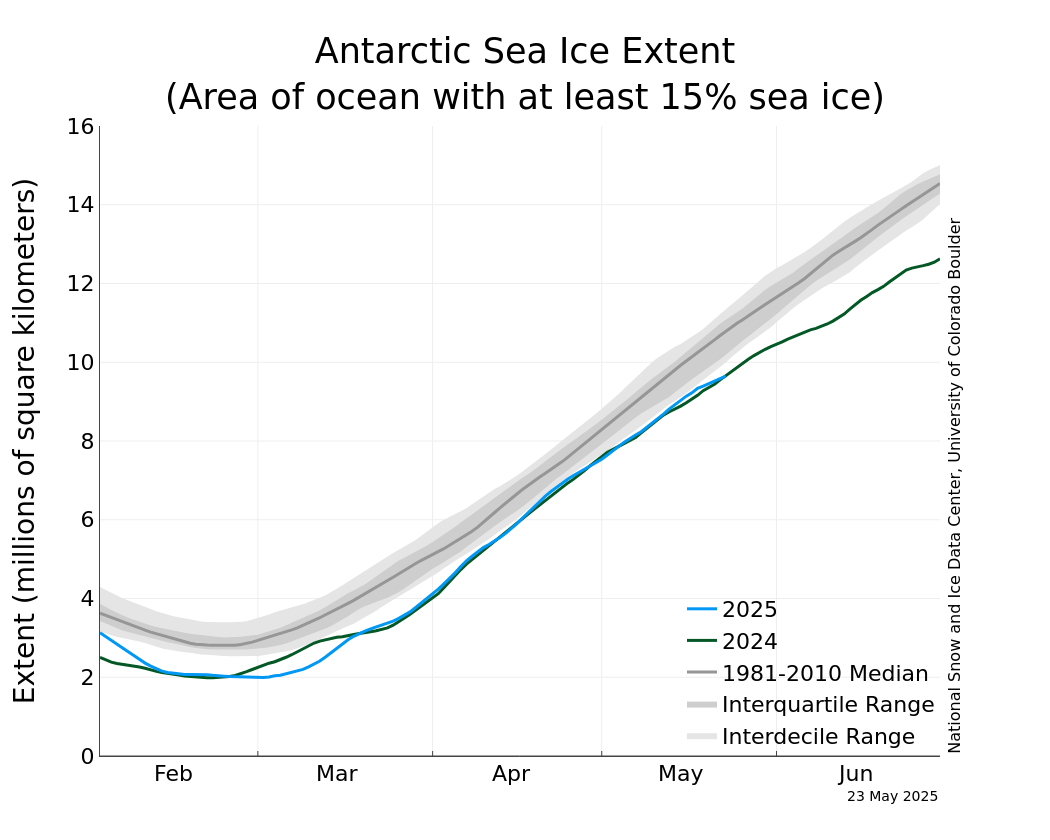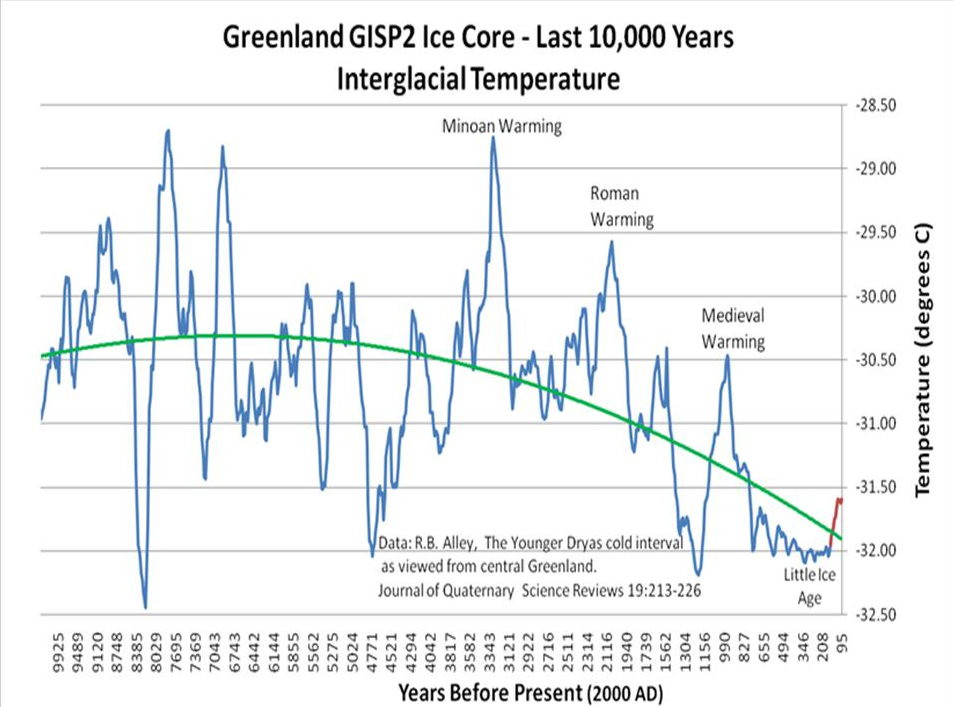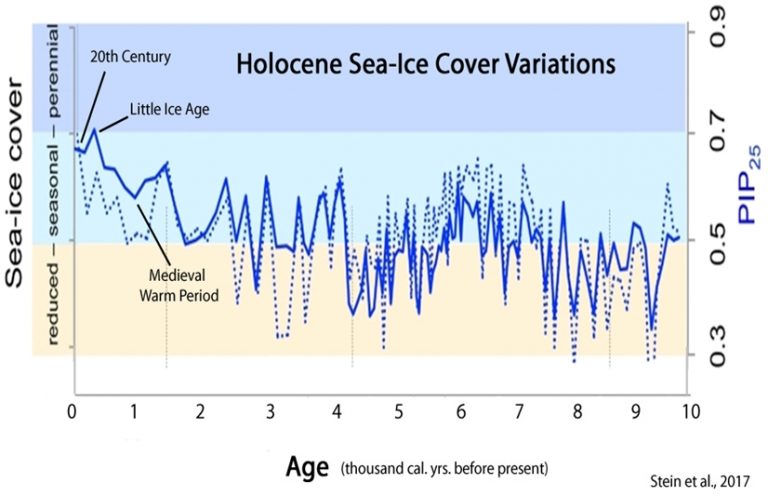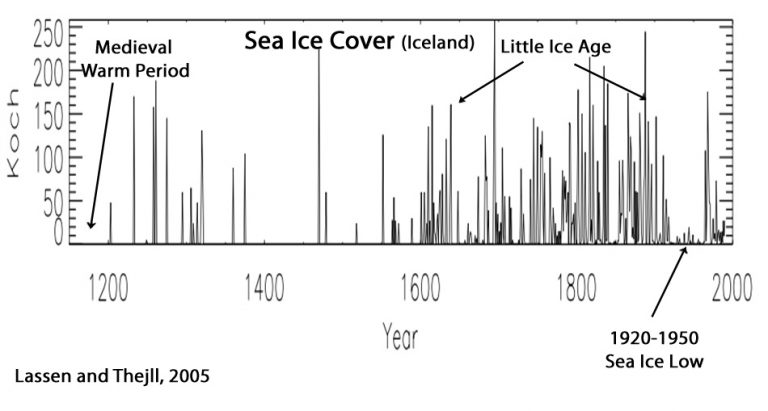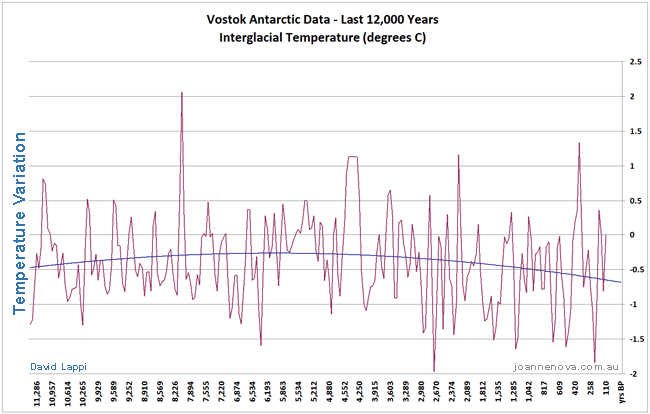Old Rocks
Diamond Member
It looks like we are headed for another very low ice cover in the Arctic this summer.
Arctic Sea Ice News & Analysis
Conditions in context
Although the 2009 melt season started slowly, the pace of ice loss quickened through May. During May, the Arctic Ocean lost 1.67 million square kilometers (645,000 square miles) of ice, an average decline of 54,000 square kilometers (21,000 square miles) per day. This is similar to the rate of decline observed last year. For comparison, the long-term average (1979-2000) rate of decline for May is 47,000 kilometers per day (18,000 square miles per day). By the end of May 2009, ice extent was 84,000 square kilometers (32,000 square miles) higher than extent at the end of May 2007.
Arctic Sea Ice News & Analysis
Conditions in context
Although the 2009 melt season started slowly, the pace of ice loss quickened through May. During May, the Arctic Ocean lost 1.67 million square kilometers (645,000 square miles) of ice, an average decline of 54,000 square kilometers (21,000 square miles) per day. This is similar to the rate of decline observed last year. For comparison, the long-term average (1979-2000) rate of decline for May is 47,000 kilometers per day (18,000 square miles per day). By the end of May 2009, ice extent was 84,000 square kilometers (32,000 square miles) higher than extent at the end of May 2007.
